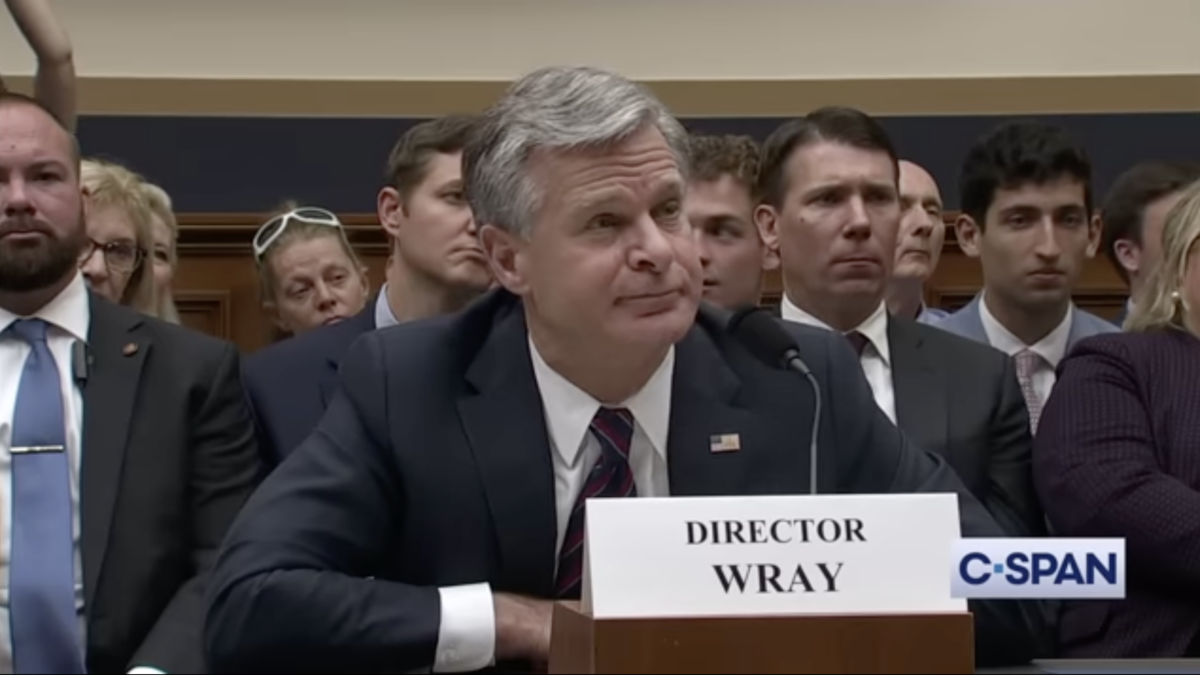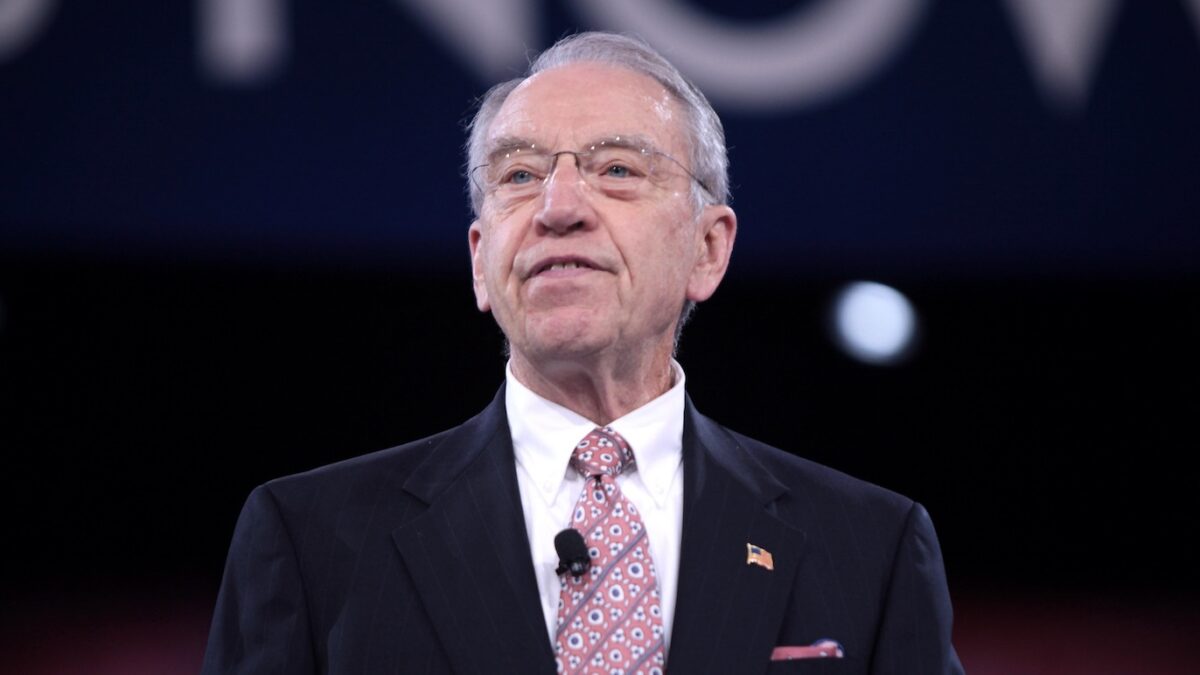Republican House Judiciary Chairman Jim Jordan is threatening to hold FBI Director Christopher Wray in contempt of Congress for heavily redacting and withholding subpoenaed documents related to the FBI’s targeting of traditional Catholics and parents at school board meetings.
“To date, the FBI’s compliance with these subpoenas has been wholly inadequate and has materially impeded the Committee’s oversight efforts,” wrote Jordan in a letter to Wray on Monday. “After several accommodations, months of persistent outreach by the Committee, and attempts to negotiate and work with the FBI in good faith, we write to notify you that if the FBI does not improve its compliance substantially, the Committee will take action—such as the initiation of contempt of Congress proceedings—to obtain compliance with these subpoenas.”
Targeting Parents at School Board Meetings
As Jordan noted in the letter, the Judiciary Committee subpoenaed the bureau on Feb. 3 after it “failed to sufficiently comply” with their request for documents related to the FBI “orchestrating and enforcing the Attorney General’s October 4, 2021, memorandum directing federal law enforcement resources to address a purported increase in school board-related threats.”
[READ: Attorney General Merrick Garland’s Message To Concerned Parents Is Clear: Shut Up Or Else]
By the subpoena’s March 1 deadline, the agency had only produced a measly “four redacted pages of school board-related documents.” The FBI claimed in a cover letter accompanying the pages that its minimal compliance was “consistent with the accommodation process,” according to Jordan. The committee then “agreed to accept documents on a rolling basis.”
A week later, the FBI “produced only ten pages of documents” and made an additional 346 pages of documents available only for review “in camera,” meaning in private.
That same month, the FBI’s Acting Assistant Director of Congressional Affairs Christopher Dunham claimed in a congressional hearing that the bureau was “actively engaged in providing additional information to the committee.” However, “As the Committee’s investigation has progressed,” Jordan wrote, “it is apparent that the FBI possesses documents responsive to the subpoena that it has not yet produced.”
Just one example is unseen correspondence that would reveal further details of how the National School Boards Association’s infamous letter to President Biden about investigating parents who protested at school board meetings for “domestic terrorism” spawned a memorandum from Attorney General Merrick Garland directing the FBI to do exactly that.
Jordan wrote that in a transcribed interview, former FBI Section Chief of Domestic Terrorism Operations Steve Jensen testified that he received an email from the DOJ’s Office of the Deputy Attorney General, who provided “him a copy of the NSBA’s letter to President Biden and asked that he coordinate and look into whether the FBI could engage on the alleged threats.”
“At Mr. Jensen’s transcribed interview, the [FBI office of general counsel] attorneys accompanying Mr. Jensen agreed to produce these documents,” Jordan wrote. So far, however, the bureau has only produced “certain documents” referenced in Jensen’s transcribed interview, and they were “heavily redacted.” According to Jordan, “The Committee has requested unredacted copies of these documents. However, to date, the FBI has failed to produce these documents in unredacted form.”
Cracking Down on Traditional Catholics
On Feb. 16, the committee requested FBI documents related to a “plainly” anti-First Amendment memorandum issued by FBI’s Richmond Field Office linking “racially or ethnically motivated violent extremists” with “radical-traditionalist Catholic ideology.”
The FBI did not respond to the committee until March 23, producing “only 18 pages—many with significant redactions” that “obscured key information specifically responsive to the Committee’s request,” Jordan noted in his Monday letter.
On April 10, the committee subpoenaed the FBI, and, on the day of the subpoena deadline, the bureau submitted more than 200 documents. However, the bureau did not “produce an unredacted version of the memorandum or any documents or communications concerning the process of drafting, reviewing, approving, or disseminating the memorandum— information that the subpoena compelled the FBI to produce,” according to Jordan.
The committee has since agreed to accept documents on a “rolling basis,” but, as of Monday, the FBI “has not provided a date certain nor advised the Committee when it will be next producing documents pursuant to the subpoena.” As with its targeting of parents at school board meetings, the FBI is believed to be hiding key documents.
Included in the documents the FBI is refusing to reveal to Congress is information about the distribution of the Richmond memorandum to field offices across the country — something the FBI allegedly did, according to a whistleblower. The FBI has also refused “to provide the names of the FBI employees involved in drafting, reviewing, approving, or disseminating the memorandum— despite repeated requests from the Committee.”
A Rapidly Approaching Deadline
The FBI has until July 25 at 12:00 p.m. “to substantially improve its compliance with the subpoenas,” Jordan wrote. “The FBI’s productions to date have been heavily redacted to exclude critical information or simply failed to include material responsive to the subpoena that the Committee knows is, or has reason to believe may be, in the FBI’s possession,” he added in a press release accompanying the letter.
Jordan’s letter also noted that the FBI’s numerous redactions in both cases violate subpoena rules. The bureau is required “to produce unredacted documents, or assert a privilege to shield information,” he said. However, “the FBI has failed to assert any privilege pertaining to the redacted materials or provide an accompanying privilege log as required by the subpoena.”
Ultimately the committee has found Wray’s defiance “unacceptable,” particularly because both cases involved the FBI weaponizing itself against Americans for exercising rights protected by the First Amendment.









